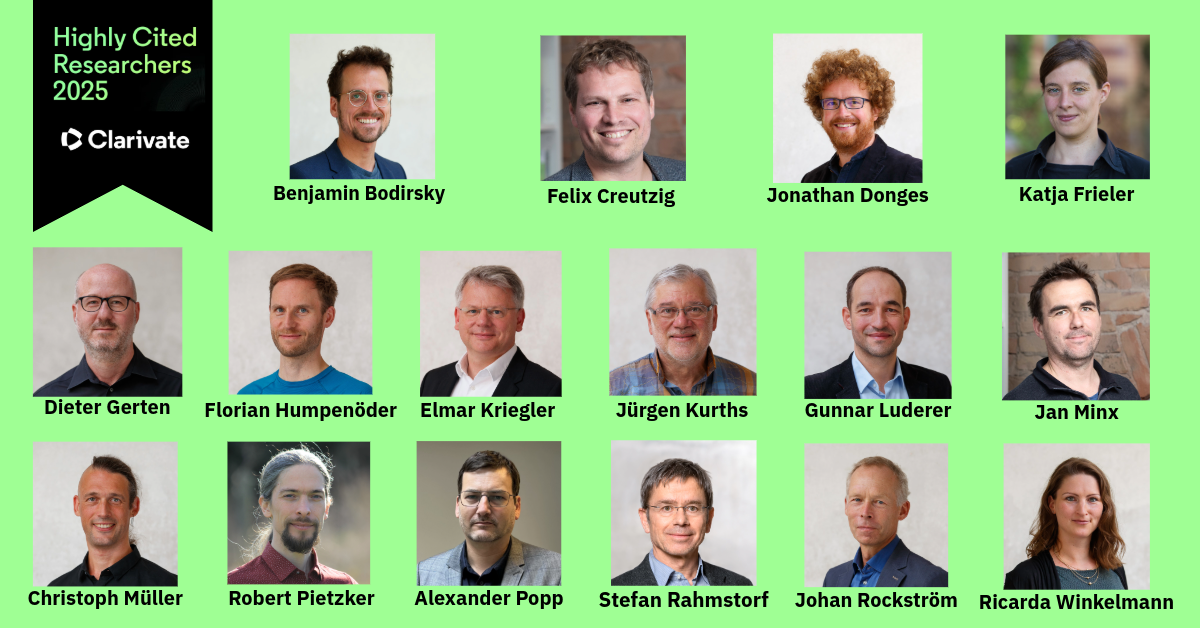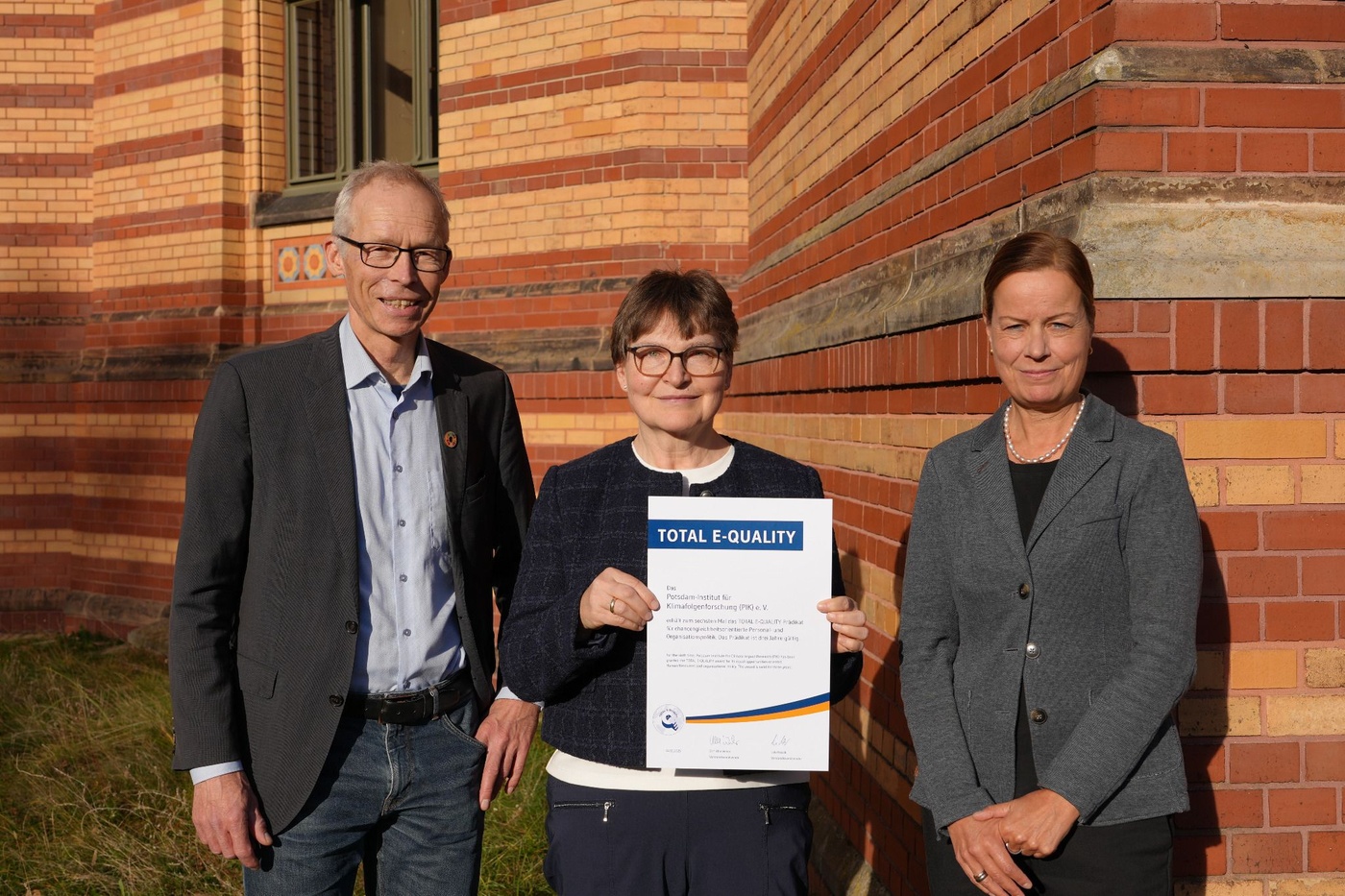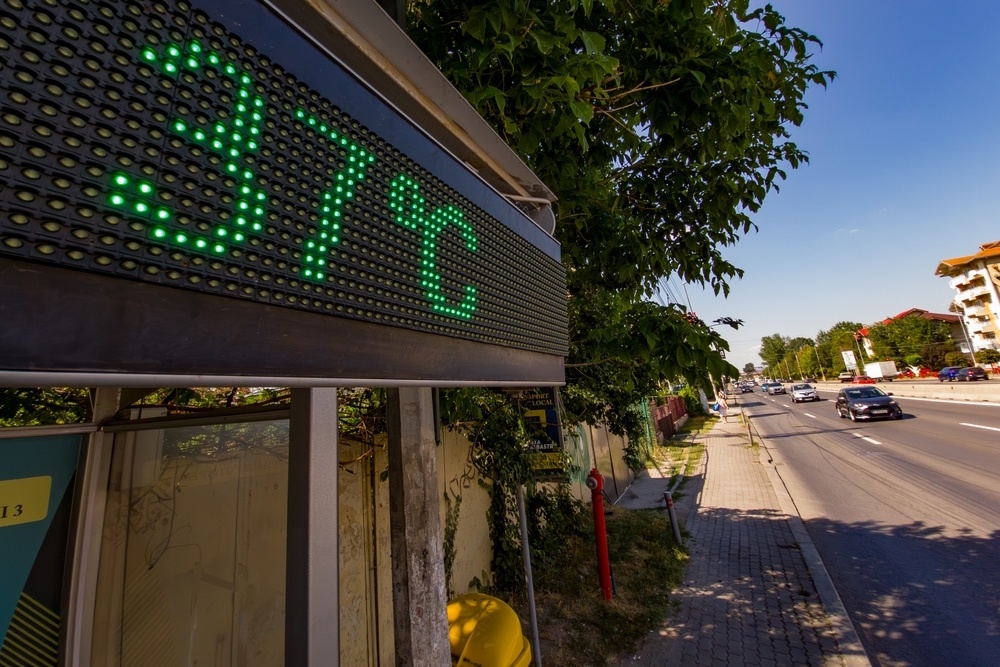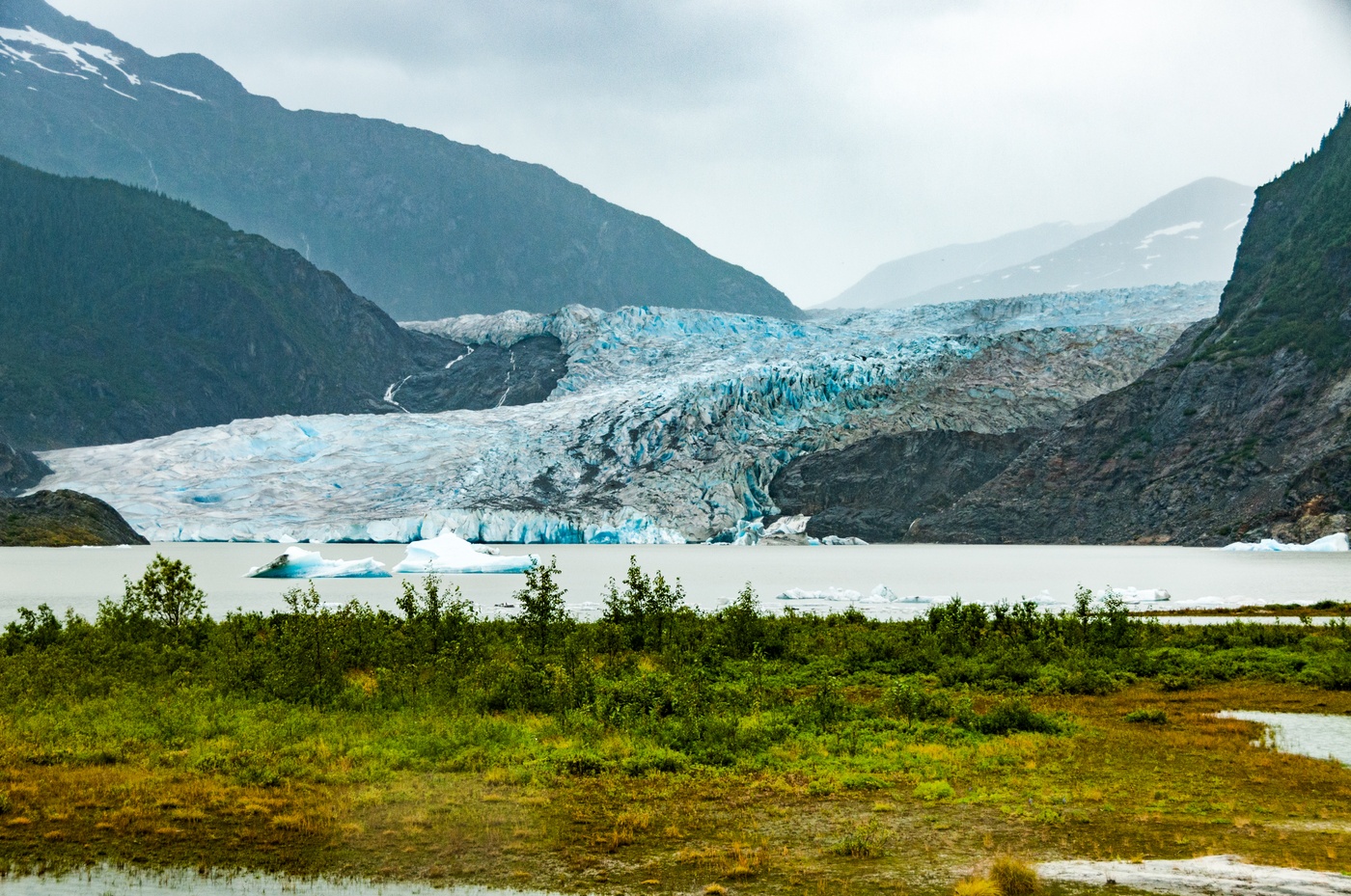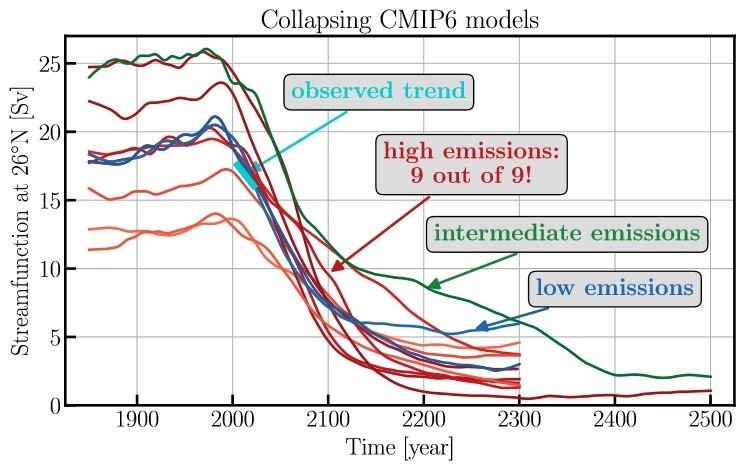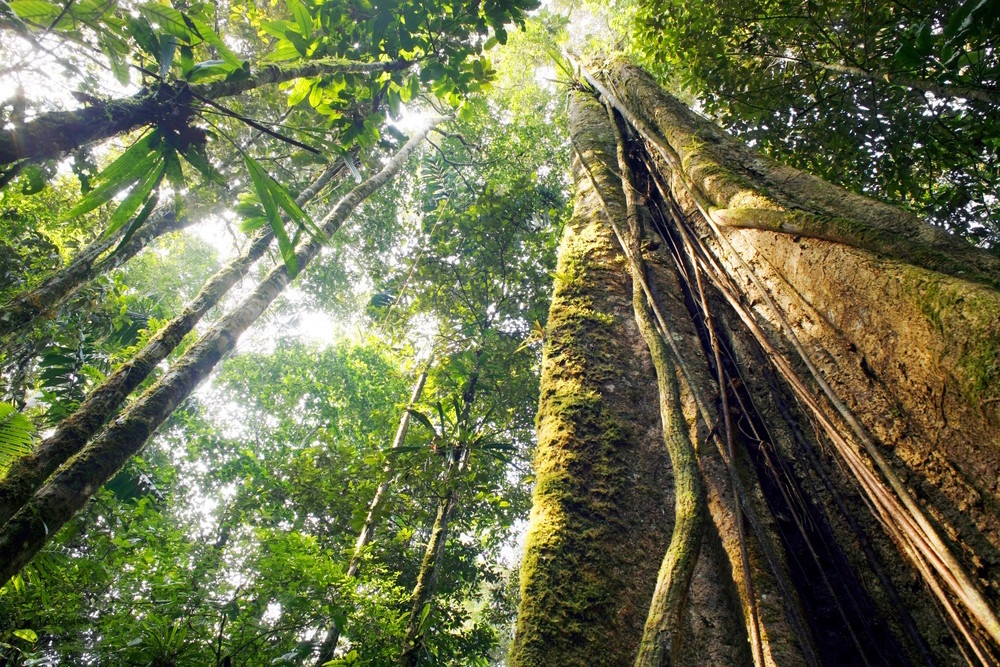Oceans, Atmosphere and Biosphere in Past, Present and Future
How does the Earth system function and what are the processes that shape the biophysical boundaries of a safe operating space for humanity?
The mission of Research Department 1 is “Earth System Analysis” – the science of a tolerable co-evolution of Earth and human societies. In this context, RD1 research advances our understanding of the dynamics, interactions and systemic complexities of the interconnected components that form the overall Earth system. Research addresses how the physical and ecological state of the Earth system and its components has changed in time and how it might evolve into the future.
RD1 consists of six working groups "Earth System Science", the Planetary Boundaries Science Lab (PBScience) and an “Earth Modelling Coordination Group” (see below for overall structure of the department). Additionally, we collaborate closely with the Earth Resilience Science Unit (ERSU).
RD1’s working groups conduct research under four overarching research topics:
Scientific Foundations of the Planetary Boundaries Framework.
Atmosphere, oceans, biosphere and ice dynamics
Earth system feedbacks interlinking planetary boundaries
Historical baselines as a reference for Anthropocene Earth
The Role of the Biosphere in the Earth System.
Genetic, ecological and functional biosphere integrity (land and oceans)
Sustainable human use and stewardship of the biosphere
Theories of the biosphere and its role in the Earth system
Climate Extremes and their Impacts on the Earth System.
Atmospheric diagnostics of climate extremes
Impacts of climate extremes on Earth system components
Climate extreme mechanisms and cascading effects
Nonlinearities and Transitions in Earth System Trajectories.
Long-term Earth system dynamics and trajectories
Earth system dynamics during key phases of Earth history
Tipping points and interacting rapid change processes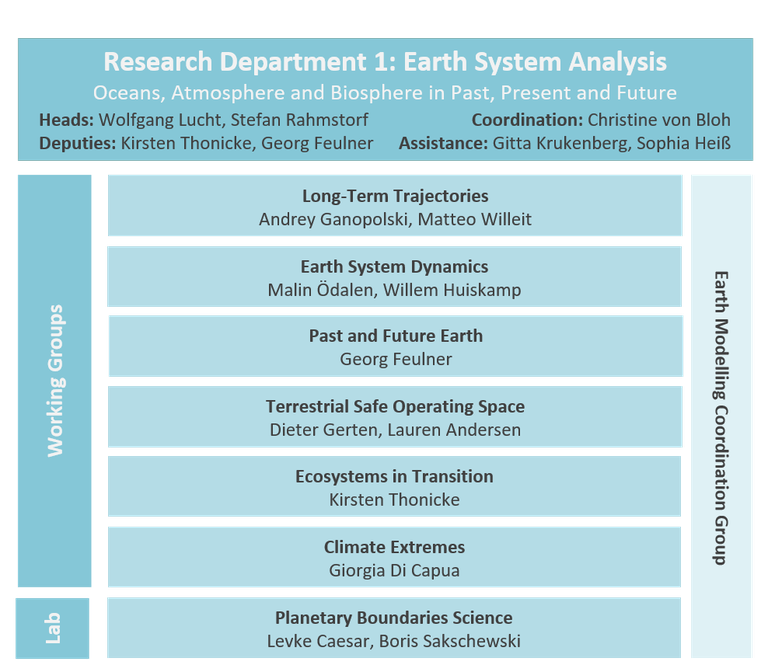
RD1’s Planetary Boundaries Science Lab and working groups are interconnected through collaborations, joint personnel and coordinated developments. The Earth Modelling Coordination Group strategically coordinates and fosters RD1’s Earth system modelling activities across component models, steers the development of the Potsdam Earth Model POEM through a dedicated POEM Steering Group, and has representatives for the RD’s other major modelling efforts, especially the biosphere model LPJmL, the fast climate model CLIMBER-X, and cryosphere modelling.
Scientific Coordination:
Christine von Bloh
Phone: +49 331 288 2659


